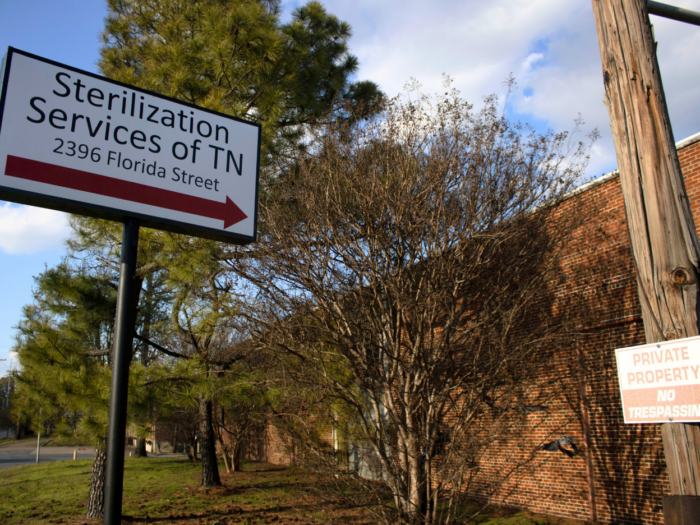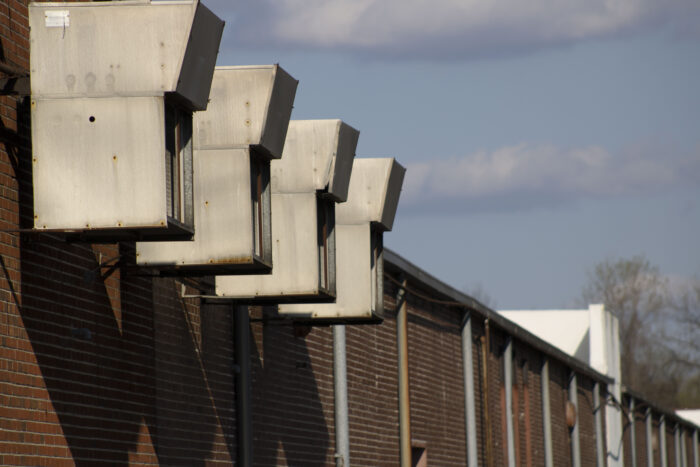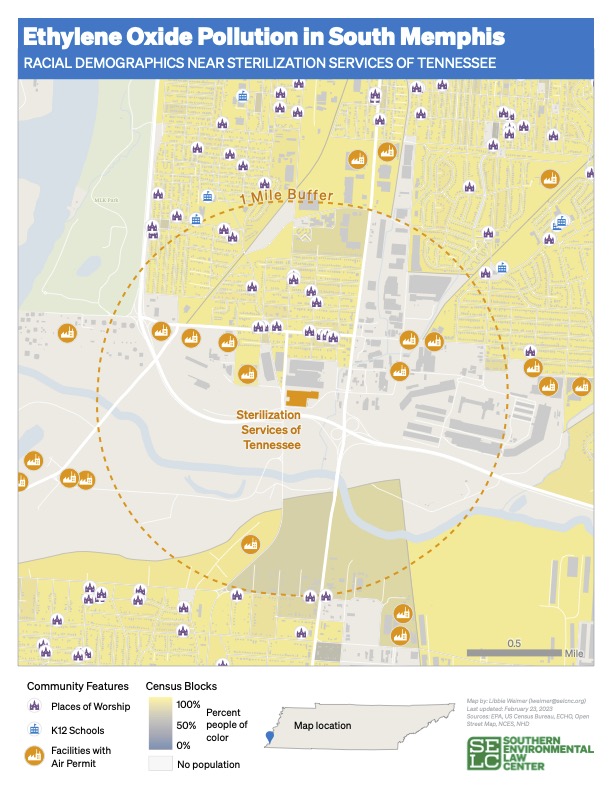What is ethylene oxide and how is it impacting southwest Memphis?
No one should have to breathe air full of cancer-causing chemicals. Learn more below about ethylene oxide and how the colorless, odorless gas is impacting our communities, and how you can help.
What is ethylene oxide?
Ethylene oxide, also known as EtO, is a colorless and odorless gas that causes several types of cancer, including lymphoma, myeloma, leukemia, breast cancer, and stomach cancer. EtO is made from fossil fuel production and is commonly used to sterilize medical equipment. Facilities that release ethylene oxide are all over the nation, including in Tennessee, Virginia, and Georgia.
How does EtO impact communities?
Environmental Protection Agency recently announced that the gas is 60 times more toxic than the agency previously thought. A person’s health risk grows the longer they are exposed to the gas.
Because ethylene oxide has no color or smell, many people living near facilities that emit the toxic gas don’t even know they are being exposed to it.


What is happening in Memphis?
Sterilization Services of Tennessee has released ethylene oxide from its South Memphis facility since the 1970s and continues to pump the toxic gas into the air today. Because of the plant’s location near homes, schools and churches, EPA identified the Sterilization Services of Tennessee as one of 23 commercial sterilizer sites that carry “elevated” cancer risks for nearby residents. The plant currently operates 24 hours a day and seven days a week.

Despite calls from the Shelby County Commission and Memphis City Council, Sterilization Services of Tennessee has refused to voluntarily reduce EtO emissions at its facility. That’s why nearby communities are now pushing the Shelby County Health Department to use its emergency powers to force the company to reduce emissions of the toxic gas. SELC, on behalf of Memphis Community Against Pollution, appealed the health department’s decision to use its powers to reduce the amount of EtO being released into the air.
The plant sits in the Mallory Heights neighborhood of South Memphis, a residential area already overburdened with more than its fair share of industrial pollution. South Memphis is made up of predominantly Black communities and is surrounded by facilities that pollute the area’s air and water. The Sterilization Services of Tennessee plant continues the long legacy of environmental injustice in South Memphis.
What is EPA doing about EtO pollution?
EPA is currently working on a more restrictive rule that is meant to better regulate ethylene oxide from commercial sterilizers like Sterilization Services of Tennessee. However, EPA officials have said that EtO-emitting facilities could be given three years to come into compliance with a new rule.

SELC and its partners are working to ensure that this rule adequately protects communities near facilities that release EtO. The rule must reduce the amount of ethylene oxide in the air and require continuous fenceline monitoring so that the agency – and people living nearby – know just how much EtO is being released into neighboring communities.
EPA must require facilities to come into compliance with the new rule within 90 days, not several years. Communities should not be forced to breathe cancer-causing chemicals as facilities drag their feet on installing protective technologies.
How can I help?
Our partner Memphis Community Against Pollution is sharing three ways you can take action now.
